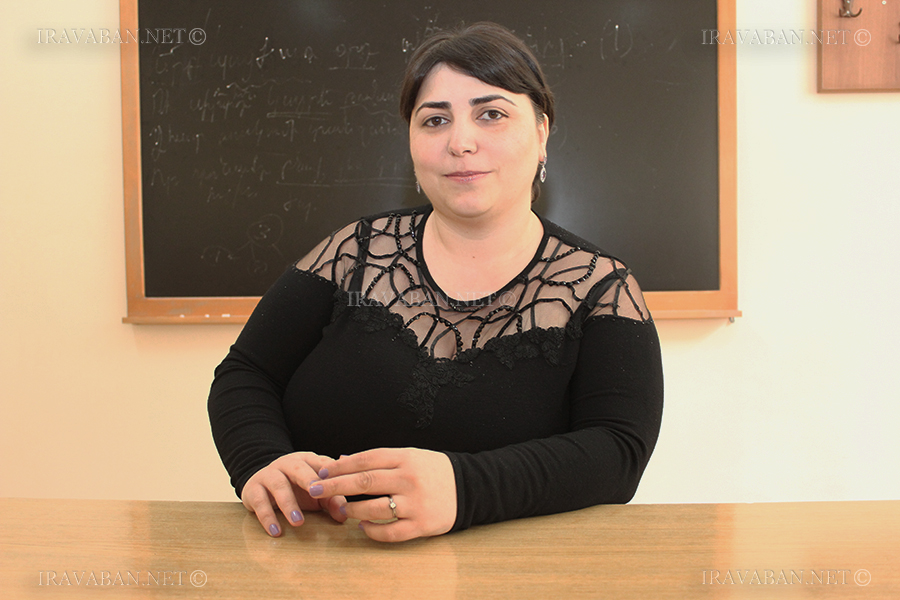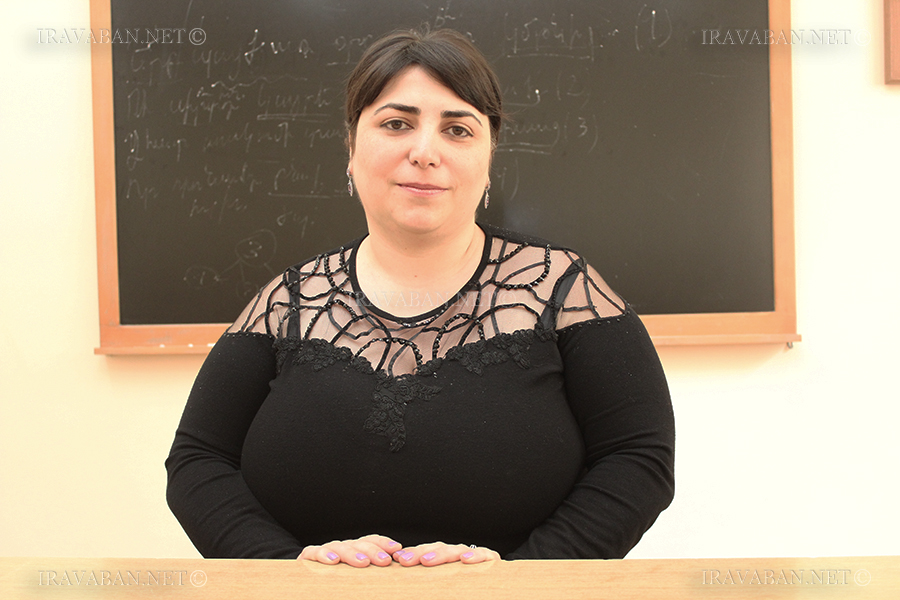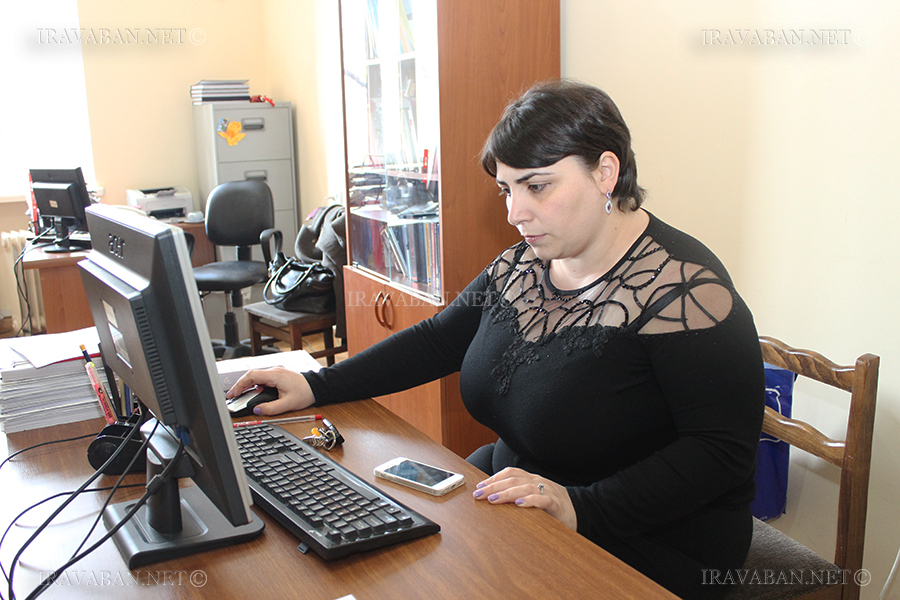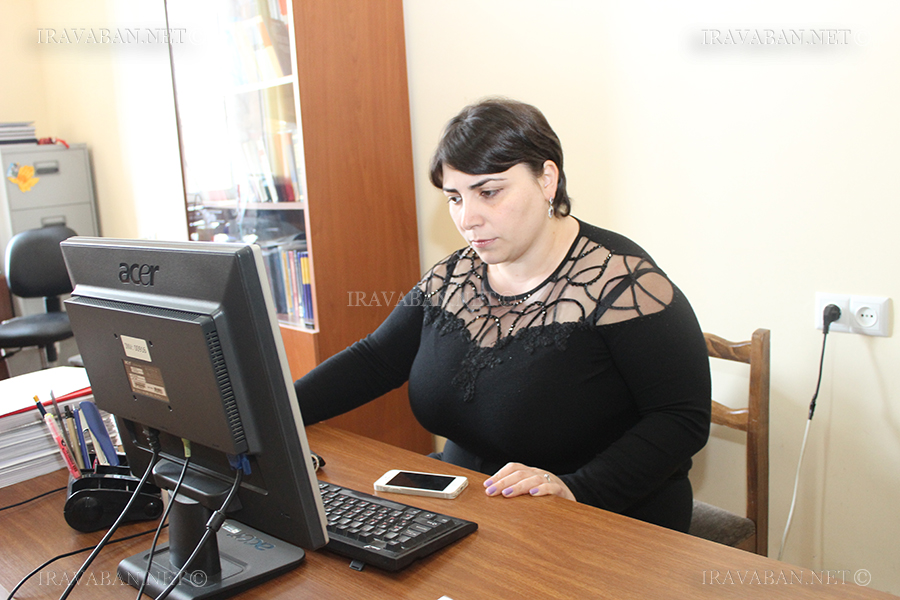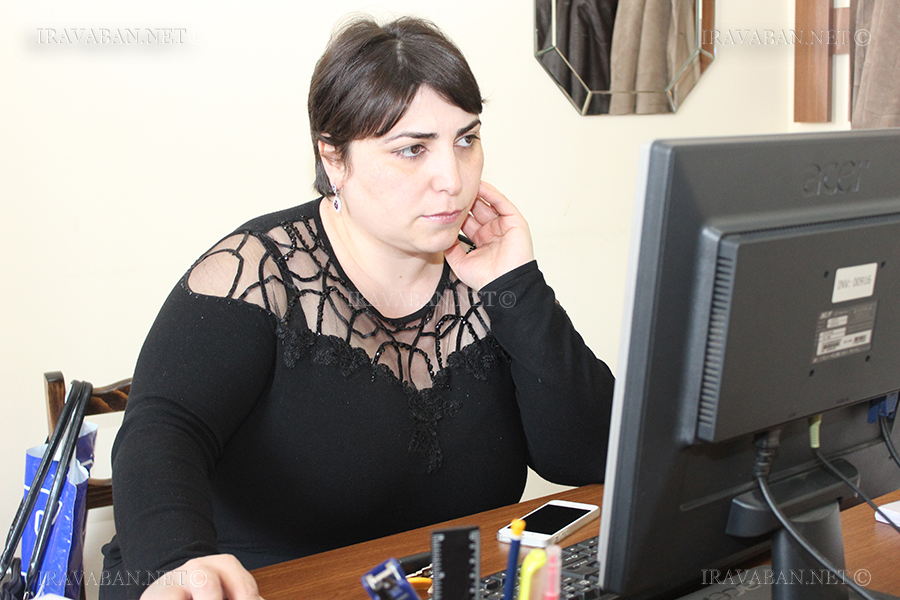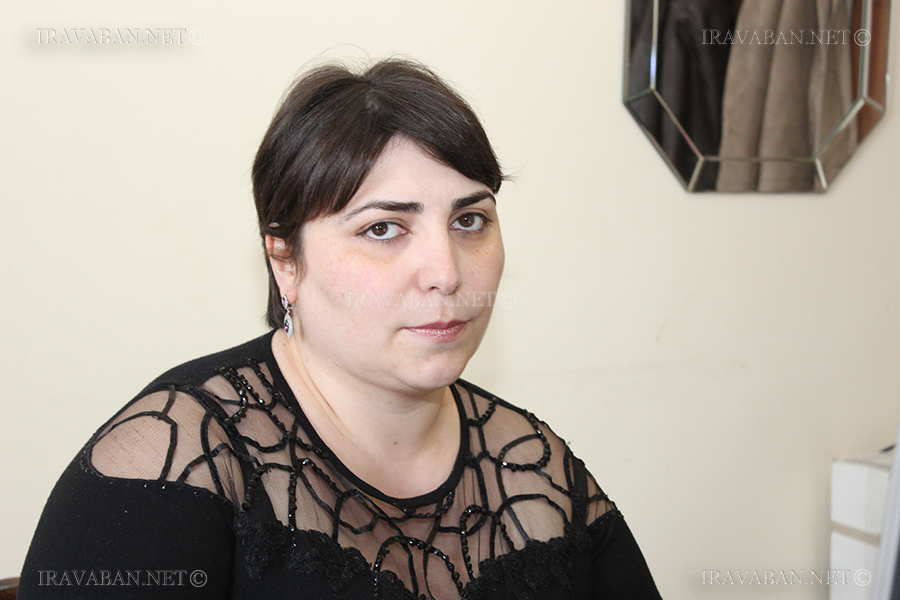Anna Margaryan is lecturer of YSU Chair of Criminal Law, specialist of criminal law. Having a wide framework of scientific interests she participated in numerous international conferences and carried out various projects.Our discussion with the lawyer was about the civil law, the Code, intentions of crime and corruption. You can find details in the interview of project “Law Scholars”.
-Mrs. Margaryan, will you please speak about the problems that excist in the field of criminal law?
-At the moment there are two main issues of high importance, which need solutions. The first is to bring to maximum liberaliziazation, and the second to harmonise to the possible extend with the requirements of international conventions and treaties.
-Correct me if I am mistaken, a working group is created to make changes in the Criminal Code, and you are also involved in it. What kind of work is done and which are the key issues, which need to be changed?
-No you are not mistaken. Of course, when the new version of the Criminal Code is ready, public will get acquainted with it. At the moment, we are working on the general and special parts. In 2-3 months period, the project will be ready in its first and preliminary version, let me repeat that it will be the preliminary version, as months of discussions will be neaded to make it complete. We will also try to liberalize it as much as possible, or apply abatement, if needed, but it doesn’t mean that you will at once see denial of punishments provided by law, for example sentence etc. Of course they will exist, but there will be more alternative versions. Liberalization must be realized on this basis, if we can avoid from sentence in certain types of crime, we will avoid, and if not an alternative punishment will be foreseen. We will have to make an opportunity of combining those two.
-Does it mean that the willing of change is due to the factors you mentioned above?
-It is due to many other factors as well. The experience that we have practiced showed that it is impossible to realize the implementation of punishement according to the current Criminal Code, it is the first issue. The second circumstance is that the legislation is changing, especially the sphere of criminal procedure law, and the Constitution is also changing. In this context it’s difficult to imagine how the lawsuit will be changed, while the substantive law remains the same. The next problem is that the new international contracts and conventions ratified by the RA should also be provided. Besides, nowadays there are many contradictions, bad and unclear formulations in the Code. The most important thing is that in nearly all cases when the court decides between sentence and alternative punishment, while making the accusation verdict, the alternative is objectively absent in 99% of all cases, because either they are not well amended or there is no mechanism for implementation of the amended alternatives. To sum it up, let me mention that all the circumstances are considered.
-The scope of your scientific interests includes the slanting behavior of juvenile. Have you ever made any studies in this sphere in Armenia, what kinds of problems were raised?
-Of course I have conducted studies, and you were right to mention that the slanting behavior of juvenile is one of the problems that I am worried about very much. Making reference to the implemented studies, I would like to mention that I have represented an international project, which studies the slanting behavior of juvenile in more than 30 countries: I conducted researches in the framework of this organization. Through this project the juveniles show everything that is impossible to find out in other way. Our juveniles are not engaged in the slanting behavior much, but for example they were in the first place of the research in the list in group fighting among all the European countries, the same situation is about the absentees from school. This research was carried out 5-6 years ago, this year I intend to repeat it to find out what have been changed among the juveniles during these years.
-What is the common age of people intended to crime? Is this defect growing and becoming dangerous or vice versa?
-While speaking about the intention to crime let’s first see what we understand under the crime and what we want to evaluate. Vey often, we just evaluate the degree of crime in our country in comparison with that of other countries, which to my mind is wrong, if it is just a mechanical comparison, simply because the actions that are criminalized in Armenia and in other countries are not always identical. This means that an action considered criminal in your country may be considered administrative violation in other country. Hence, we of course have differences in statistics. In Armenia, the most interesting intention is the one which has always existed, the phenomena of violence appear very often, the worse is the social-economic situation – the more is the number of the actions in with violence. I do not want to make any announcements at the moment, but the information spread by mass media shows that the number of racketeering and thefts increases. As in other countries, the more active is the youth of the age of 18-25. In addition, another interesting intention is noted among the juveniles, girls are also involved in crimes, which did not exist before. I cannot say that this problem is widespread, but in recent years there have been cases when girls have acted as a performer of criminal attack, maybe not in the main role but as accomplice of attempt.
-What are the reasons for it?
-It is due to the liberalization concepts that we are always speaking about, girls have the same role in the society as the boys. It also makes changes in their consciousness.
-Do they take also negative sides in addition to positive rights and privileges?
-Of course we cannot avoid it; if we talk about equality we shall be ready to see it in every aspect. It does not mean that the female will have that equality only in work employment or protection of rights. It will also exist in involvement aspect as well. They will afford themselves doing things, which are relevant to boys, including criminal behavior.
-Do you think that the fight against crime is carried out properly?
-I do not think there is a country, where theynwould say that they are satisfied with the scope of the fight against crime. I would not say that I am staisfied either. The fact of the growth of crime allows saying that the fight against it has failed. However, there is also the second factor, what resourses, what objective opportunities and conditions do we have for its implementation? Unfortunately we have appeared in a closed loop, first we want to save the means, on the other hand we want to implement that work with these resourses.
-What is the appearance of the corruption crime in Armenia nowadays? How shall we fight against it?
-It is of the same appearance as in the past.
-Does it mean that no essential changes have been made during these years?
-The framework of actions has been widened. Of course everything that exists is criminalized by international, conventional requirements. But the practice is not regular. If you throw glance at the circle of people subjected to responsibility for corrupt criminal behavior, you will see that steps have been taken, but there are not very essential and in general those subjected to responsibility are representatives of a law circle, but corruption does not exist only in the low levels. Hence the problem remains unsolved.
-Mrs. Margaryan, at the moment the problem of introduction of the probation service is discussed. Do you think it is a solution to the problem? Being acquainted to our public criminal defects, also to our character and mentality, do you think it will work efficiently in Armenia?
-I have concerns in terms of personnel; it will take time before they begin to function normally.
-YSU also prepares the staff, doesn’t it?
-We educate criminologists, 10 specialists per year, while we need thousand of them.
-Let’s shade a private light in our interview. Please tell me about your family.
-I live with my parents in a family of lecturers. My father is a physicist, mother is a chemist-naturalist, and my sister is a doctor.
-Why did you choose just this profession? As I got, there are no lawyers in your family?
-In the primary level there were not anyone, but now there are many of them. If you have studied in the faculty of law, and especially with the lecturers that have taught me, you would have seen the influence and love and it would be very difficult for you not to admire this profession. In addition the sphere is also interesting. You can apply the law, but if you do not understand the motivation, it will be difficult to qualify, and prevent.
– How should the student be according to you?
-Unique. First of all he should not be constrained of the opinions expressed by others, he will be in certain frames, if his friend does not agree with his viewpoint, and he should not contradict by making conflicts. But the most important thing for me is curiosity; he should try to find original answers. I am not interested in the material of the book; I want him to get solutions to problems himself.
-Let’s speak about the preferences, what literature do you read? Maybe detectives?
-No, I preferred detective books when I was young, now I am interested mostly in psychological and philosophical directions, but in those ones that provide opportunity to think.
-Do you have any hobbies?
-I am fond of travelling; perhaps it is my favorite hobby. My favorite country after Armenia is Italy.
-Do you think of moving to another place?
-Everyone should understand that it is impossible to find the mentality, which he had received with his birth, in other place. One may move to other place, but very few people especially those of the first generation succeed. Why do the European countries pay so much attention to the problems of emigration? Simply because the emigrants do not get adapted and do not understand them. Is it necessary to move to another country were neither they nor I will understand each other.
Interview: Gevorg Tosunyan
Photos of te the Auuthor
Author of the Idea: Karen Zadioyan

